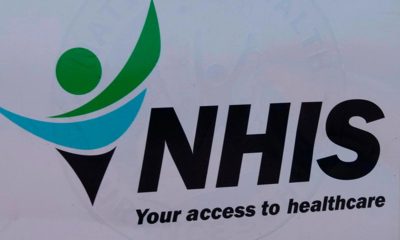Insurance
Everything About Health Insurance For Expats In Thailand

If you have relocated to Thailand, you may be confident that you will be well taken care of in the event of a medical emergency. Thailand’s healthcare system and national health insurance are both of high quality.
Those who want to avoid long waits and have access to a more smooth healthcare experience can always turn to the private sector of Thai medical insurance. This is not the same as Thailand travel insurance, which exclusively covers tourists and visitors for travel-related occurrences.
Expat Health Insurance in Thailand
Expats in Thailand have the following options for health insurance, depending on their residential status:
- Public Thailand health insurance for working expats – Expats who are employed in Thailand are enrolled in the Universal Coverage Scheme (UCS), which provides free healthcare through contributions that are deducted from the employee’s salary.
- Private health insurance – Expats who are not employed or who desire health care at private hospitals might purchase a local or international private medical insurance policy. Expats who retire in Thailand must get a private insurance plan or pay the price out of pocket. International firms such as Insubuy and International Citizens Insurance offer international health insurance for Thailand.
Public Health Insurance in Thailand
Working expats in Thailand receive free public healthcare through Universal Coverage Scheme donations. All Thai workers—expats and citizens—pay 5% of their salary into the social security plan, which covers the public health insurance network.
Once you enlist in public healthcare, an expat will be allocated to a hospital for free treatment. Other hospitals and private healthcare require out-of-pocket costs.
Benefits of public health insurance in Thailand
- If you receive treatment into your assigned hospital, you do not have to pay anything. You can just show your Social Security Number and ID.
- Medical services are of good quality since the doctors in public hospitals are highly skilled.
- You do not need to pay anything extra, as it is covered by your contributions to social security.
Drawbacks of public health insurance in Thailand
- Like in all public hospitals, the waiting times can be long and the hospitals crowded, so that means a short visit.
- Treatment is limited only into the hospital you are assigned to. If a preferred doctor does now work at your assigned hospital, you do not have coverage for a medical examination with them.
- If you lose your job, you will no longer have free healthcare.
Private Health Insurance in Thailand
Expats in Thailand who are ineligible for public health insurance or who desire a broader variety of coverage can buy private health insurance. You can receive treatment in any public or private hospital in Thailand if you have a private insurance plan. Typically, you must pay for therapy up front and then request for reimbursement.
There are two main options when it comes to purchasing medical insurance for Thailand:
- Purchasing a domestic plan – In this case, the coverage is limited only within Thai borders, and you will not be covered for any medical emergencies abroad.
- Purchasing an international health insurance plan – You will have health care not only in Thailand but also in other countries covered by your policy, such as if you fly back to your home country or go on vacation. International insurance for Thailand (also known as expat medical insurance) can be purchased through insurance brokers like as Insubuy or International Citizens Insurance, which allow you to compare numerous plans and businesses to find one that meets your needs.
Private healthcare in Thailand is great. Thailand’s private hospitals, which sometimes resemble five-star hotels, make it a major medical tourism destination.
Thai private hospitals offer high-quality care at lower costs than US hospitals, which has led to medical tourism. Still, private healthcare costs much more than public.
Private hospitals are better equipped, have lower wait times, and have more English-speaking doctors and personnel.
What Does Health Insurance in Thailand Cover?
In Thailand, the coverage of your medical insurance plan is determined by whether it is private or public. You will have extensive coverage for most medical treatments and prescription medication under the public (social security) plan. You can choose and personalize the quantity of coverage you require with a private insurance plan.
Thai Public Health Insurance Coverage
Thailand’s public medical insurance covers for:
- Medical examination and treatment
- Hospitalization
- Prescription medicine
- Ambulance fees
- Rehabilitation
- Health promotion
- Nursing care
- Lab work and X-rays
It is entirely free of charge if undertaken on the assigned public hospital. In cases of emergencies, you can receive treatment in another public hospital, pay upfront, and then you will be reimbursed by Social Security.
Additionally, you will be covered for maternity and sickness leave:
- For maternity, you will receive 50% of your salary for up to 90 days after birth. Only extends to your second pregnancy.
- For sickness leave, you will receive 50% of your salary for up to 180 days total per year beyond the “sick days” your employer provides. For more serious illness, such as cancer, this can be extended to 356 days.
Dental coverage
The public medical insurance scheme is Thailand only covers a certain amount for dental expenses, which is usually only enough to cover checkups and minor procedures. For any more serious dental interventions, you will either have to pay yourself or purchase a private health insurance plan with dental coverage.
Thai Private Health Insurance Coverage
Domestic and international private health insurance policies include medical treatment, prescription medicine, ambulance fees, maternity, and hospitalization. Thailand’s public and private hospitals allow you to choose your doctors, which is an upgrade.
International health insurers also cover emergency evacuation and repatriation. Say you’re an American expat in Thailand who wants medical care in the US. International health insurance covers evacuation, but domestic insurance does not.
Thai expat retirees also worry about domestic insurance businesses excluding or not selling plans to seniors.
So, What’s the Best Health Insurance for Thailand?
The best type of health insurance for Thailand will depend on your needs and preferences. A combination of both your public social security insurance and an additional private insurance scheme should cover you for any emergencies that can happen, and ensure you are comfortable and well taken care of.
- Public insurance: If you do not want the extra money, do not mind waiting for a doctor’s visit, and are otherwise healthy, you can easily continue with your public insurance system. Thailand’s public healthcare system is far from bad. The doctors are skilled and well-trained, and the country’s public healthcare system is regarded as one of the best in the world, having been named to the 2019 list of countries with the best healthcare systems by Thai media.
- Domestic private insurance: If you want more convenience, the ability to choose your own doctors and hospitals, a better experience if you require medical treatment, and you don’t mind the extra expense, Thai private health insurance is for you. However, because many companies eliminate coverage for anyone over the age of 65, this may not be beneficial for retirees.
- International health insurance: If you want a broader variety of health insurance coverage, not just in Thailand but also overseas, you can select a complete international health insurance plan, which is often the ideal insurance plan for expatriates who travel between their country of residence and their home country. You can find the best Thai health insurance by comparing several policies online, using online marketplaces such as International Citizens Insurance or Insubuy.
Cost of Health Insurance in Thailand
There are several factors which affect the cost of a health insurance policy, including:
- Your age. Senior citizens usually have to pay more for medical insurance than the younger generations.
- The amount of coverage you want. The good thing about private insurance is that you can customize and choose how much coverage you want or need. The more coverage, the pricier the policy.
- How many people are included in your plan. If you add your family members, then the monthly premiums will be higher.
- Whether you choose a domestic or international plan.
Public health insurance, on the other hand, depends on your income. You do not need to pay anything additionally, since the money is taken directly from your salary in the form of social security contributions (5% of the salary).
Am I Eligible for Public Insurance in Thailand If I Am Self-Employed?
Self-employed individuals are also eligible for coverage under the social security scheme if they enroll voluntarily and pay their premium.






















